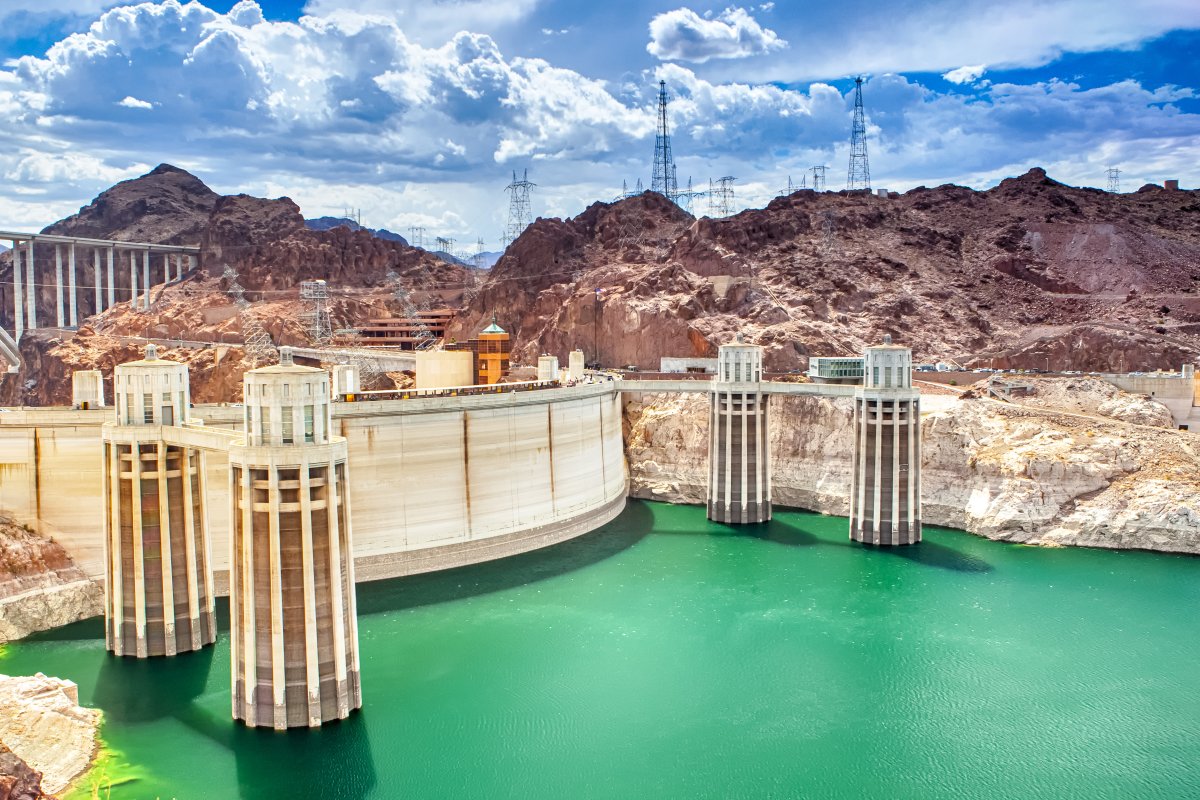Lake Mead's water levels have continued to rise very slightly over the past week, but the projections for 2023 still look dire.
The reservoir formed by the Hoover Dam on the Colorado River has water levels standing at 1,045.99 feet as of January 24. That's a slight rise from the 1044.69 feet recorded at the beginning of January.
The increase is likely due to the weeks of heavy rainfall that swept across California and Nevada in recent weeks. The storms came during one of the severest droughts the region has ever seen, and since 2000, most of the western United States has suffered as a result.

Lake Mead's water source relies on rainfall and snowpack melting and coming down from the mountains. The drought has made these seasonal weather patterns a lot less frequent and harder to predict. This means that the surrounding lower basin states, including Nevada, Arizona, California and Utah, are using water faster than it can be replenished.
As a result, Lake Mead's water levels are rapidly declining. The reservoir—which stretches across Nevada and Arizona—is relied upon by 25 million people living in the region. The Hoover Dam, which generates electricity for the surrounding communities, will no longer be able to operate if it reaches deadpool level, which is at around 895 feet.
In July 2022, Lake Mead's water levels reached an all time low of 1,040 feet. Although the levels have risen slightly since then, it has not been by much.
A study published by the Bureau of Reclamation last week showed that Lake Mead could reach a new all time low in 2023. It projected water levels could reach 1,024.47 feet by November.
Despite the recent rise being a welcome source of replenishment for the lake, it isn't likely to help the situation in the long term.
As the drought has gone on for so long, it will take a lot more wet weather to fix the problem. Experts believe that only a change in water policy can help save the lake.
Jennifer Pitt, director of the Audubon Colorado River Program, previously told Newsweek: "Lake Mead's water levels have been declining since 2000. It has gotten warmer and drier, and the rules haven't changed fast enough to stop the decline. The legal framework is really complicated, but it's urgent to change it right now before the risk increases and there's no water for everyone and everything dependent on water from Lake Mead—farms, birds, major cities, really all life in the Southwest."
Do you have a tip on a science story that Newsweek should be covering? Do you have a question about Lake Mead? Let us know via science@newsweek.com.
Uncommon Knowledge
Newsweek is committed to challenging conventional wisdom and finding connections in the search for common ground.
Newsweek is committed to challenging conventional wisdom and finding connections in the search for common ground.
About the writer
Robyn White is a Newsweek Nature Reporter based in London, UK. Her focus is reporting on wildlife, science and the ... Read more
To read how Newsweek uses AI as a newsroom tool, Click here.








